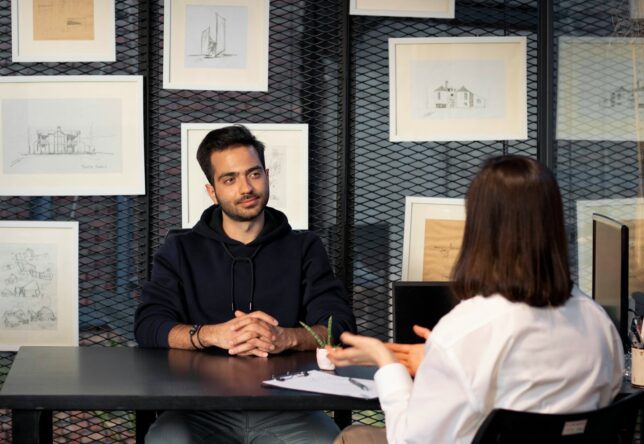Getting an interview is a big step—it means something about your application stood out.

However, when interviews don’t lead to offers, it can feel frustrating and confusing. The reasons aren’t always clear, and it’s not always about qualifications. Sometimes it comes down to things that happen during the conversation itself, or signals that get picked up without you even being aware of it. If you’ve been making it to the interview stage but can’t seem to get over the line, here are some possible reasons why.
1. You’re not tailoring your answers to the role.

It’s easy to fall into the trap of giving general responses, especially if you’ve had multiple interviews recently. Of course, if your answers don’t clearly connect your skills to the specific job, it can come off as vague or disinterested. Interviewers want to hear that you understand what this role actually involves. If they can’t picture you doing the job after speaking with you, they’re unlikely to move forward, even if you’re qualified on paper.
2. You’re too modest about your experience.

There’s a fine line between confidence and arrogance, but if you lean too far in the other direction, you risk underselling yourself. People sometimes downplay their skills to avoid sounding braggy, and end up sounding unsure instead. Interviewers want someone who knows what they bring to the table. If you can’t speak about your strengths with clarity, they may assume you don’t have much to offer, even if that’s far from the truth.
3. You’re not showing genuine enthusiasm.

You might be capable, but if you come across flat or uninterested, it leaves a mark. Hiring managers often go with someone slightly less qualified who seems genuinely excited to be there. It’s not about putting on a fake smile; it’s about showing curiosity, asking questions, and sounding engaged. If you don’t seem interested in the role, they won’t be interested in hiring you.
4. Your answers sound too rehearsed.

Preparation is great, but if your responses sound like they’ve been memorised word-for-word, they can feel robotic or disconnected. Interviewers can tell when someone’s reciting a script instead of having a conversation. It’s better to know your talking points and speak naturally than to deliver perfect answers with no personality. They’re not just hiring your resume. They’re hiring how you communicate and connect.
5. You’re not asking thoughtful questions at the end.

When the interviewer says, “Do you have any questions for us?” it’s not just a formality. It’s a chance to show you’ve done your homework and are thinking seriously about the role. Having nothing to ask or throwing out generic questions can be a red flag. It suggests a lack of preparation or real interest. Smart, tailored questions leave a stronger final impression than you might expect.
6. You’re giving too much irrelevant detail.

When you’re nervous, it’s easy to start rambling. But long-winded answers that veer off track make it harder for interviewers to understand your strengths or focus on what matters most. Clear, structured responses with specific examples are usually more effective than trying to tell your entire backstory. Staying on point shows confidence, and respect for their time.
7. You’re not making a strong closing impression.

First impressions matter, but so do the last few minutes. If you end the interview passively or without reinforcing your interest, it might come across like you’re not all that bothered. A simple statement like, “I’d be excited to contribute to this team” or “I really enjoyed learning more about the role” can make a difference. It leaves them with a clearer sense of your enthusiasm and professionalism.
8. You’re missing cultural fit cues.

Sometimes it’s not about how capable you are; it’s about how well your personality or communication style fits the team dynamic. If you seem stiff in a relaxed culture (or too casual in a formal one), it can create doubt. You don’t have to change who you are, but picking up on tone, values, and how the team interacts can help you connect better during the interview. Fit doesn’t mean being identical. It means being in tune.
9. You’re avoiding honest discussions about challenges.

When asked about weaknesses or past mistakes, trying to dodge the question or offer a vague non-answer can make you look evasive. Interviewers don’t expect perfection. They want to see self-awareness. Talking openly about what you’ve learned from a tough experience shows maturity and growth. If you can’t admit to challenges, it makes it harder to trust how you’ll handle real-world situations in the role.
10. You’re not following up properly.

It might seem small, but sending a thoughtful follow-up email makes a difference. It shows professionalism, respect, and genuine interest, especially if you reference something specific from the conversation. Skipping it altogether, or sending a rushed “thanks,” can come off as disengaged. A good follow-up isn’t about chasing. It’s about reinforcing your enthusiasm and showing that you care about how you show up.




